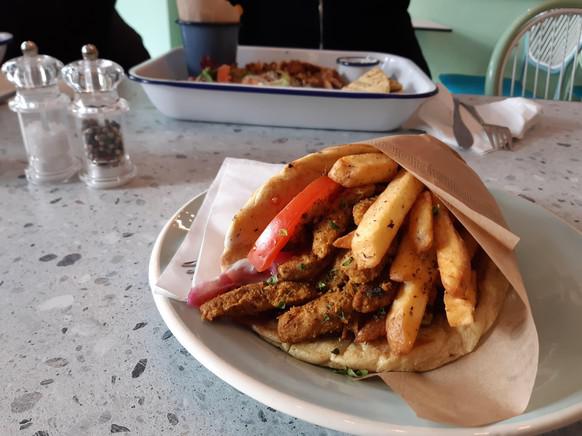
Ischgl actually stands for slopes, snow, party. There are more than 10,000 guest beds and 239 kilometers of ski slopes for around 1,600 inhabitants. "Relax, if you can" is the marketing slogan of the small Austrian town. But the relaxed atmosphere is gone. Peace has returned to Ischgl and the Paznauntal - but there is a lot of talk.
The international headlines, in which Ischgl is described as "Europe's virus slingshot", keep people busy. "Many are afraid," says a woman who prefers to remain anonymous. Some could no longer sleep, others were desperate. It's about livelihoods, because the most important source of income in the valley, in the entire state of Tyrol, is tourism. "We're at rock bottom emotionally." Now you will soon be the scapegoat of the world. That hurts a lot.
Society is changingFuture researcher Matthias Horx: "The corona crisis is an opportunity!"
Andreas Walser has lived in Ischgl all his life. Everyone in the village knows him as a doctor with a distinctive moustache. He takes care of residents, hotel staff and tourists in the event of illness or accidents. He is also the first point of contact for infections. On March 7th, Walser carries out a corona test on a man in his practice. The man is a bartender in one of the hippest après-ski bars in town. Tourists gather there every evening, drink beer and party wildly. The test is positive - the bartender is the first confirmed corona case in Ischgl, but according to research by the Agency for Health and Food Safety it is not the first virus carrier in town. interview
Interview with Ralf GantzhornClimate change in the mountains: "Investing in snow cannons is crazy"
"This first patient came to us with a severe flu infection," remembers the village doctor, Walser. He carried out the test "based on the symptoms and the anamnesis". The man later stated "that there is feedback about guests who have traveled home and who have tested positive for Covid-19 at home". Before March 7th, Walser explains in medical jargon, there was not a single person with the lung involvement that is typical of the virus. "Neither with us, nor in the hospital, nor in the Innsbruck clinic," he tells the German Press Agency.
However, on March 5th, the Austrian authorities received a report from Iceland. 15 people had tested positive for the corona virus, and their return journey was a few days ago. Iceland declares Ischgl a risk area, but the Tyrolean authorities assume that the infection came on the plane and not in the country. Celebrations continue for days in the ski areas. Then, on March 13th, a quarantine will be imposed on Ischgl and the Paznauntal, but with the possibility for tourists - and thus also for the virus - to leave the valley. The lifts will be closed from March 16th.
4000 people infected in Tyrol
The Austrian consumer advocate Peter Kolba has now received more than 4000 reports from people who say they were infected with the corona virus in Tyrol in March. More than 70 percent of these reports come from Germany. And the majority of people say they have been to Ischgl. "Our main focus is on the authorities, who - so we suspect - acted slowly. We assume that this was the case for commercial reasons," Kolba recently told the "Standard".
Art action in ZermattMessage on the Matterhorn: A place with signs of light in the Corona crisis
"I believe that it is urgently necessary to deal with the whole thing independently at the right time," says Ingrid Felipe (Greens) . She is the deputy head of state in Tyrol and is bothered by the blanket judgment that the state is currently exposed to. "It may be that there are individuals who deserve this criticism. But you also get a lot of people who couldn't have caused it."
Village doctor Walser is also repeatedly accused of the fact that Ischgl is responsible for the spread of the corona virus and the suffering of many people. "We also inherited the virus, and this virus also hit us out of the blue," he says. "It just happened to us and we then tried to react to it with all means possible under the guidelines of the authorities." In Ischgl it is like in other tourist strongholds: many international visitors, brisk traffic in a very small area. In the small Tyrolean district of Landeck, which also includes the Paznauntal, there are around 800 corona cases - in relation to the number of inhabitants, a sad peak value in Austria.
Tyrolean tourism must change
"The number of new infections (in Ischgl) is steadily decreasing," explains Walser. "You can feel a slight sigh of relief in Tyrol," says state politician Felipe. The quarantine for all Tyrolean communities has therefore been lifted - with the exception of St. Anton, Sölden and the Paznauntal, all well-known winter sports areas.
But what can the future look like for the state of Tyrol and tourism? State politician Felipe is hoping for a learning effect for tourism. "I have long believed that Tyrolean tourism should develop much more in the direction of climate-friendly tourism that is close to nature and less geared towards hut fun and après ski and kilometers of slopes." Countering the crisis with large construction projects in order to be able to advertise with even more kilometers of slopes next winter does not seem to be expedient. "I don't know if you can relax now, after an event like this, for it."







